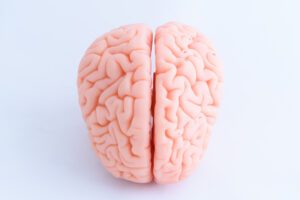
Some insect-carried diseases cause patients to suffer an acquired brain injury (ABI). In some cases, this can happen within hours of the first symptoms of the illness. The brain injuries can be mild, moderate, or severe. The effects of an insect-carried disease acquired brain injury may be overcome in some cases with therapy and rehabilitation, and cause permanent disabilities for others.
The best way to prevent insect-borne illnesses is to avoid the insects that carry them, including using bug spray to keep ticks and mosquitos away. There are also vaccines available against some of these diseases.
Insect-Carried Disease Acquired Brain Injuries
Some insect-carried diseases can cause brain injuries. In general, the faster the patients get medical care, the better. A quick diagnosis and prompt treatment can reduce the severity of the brain injury. However, some of these illnesses can still cause severe brain damage even if doctors do get the infection under control quickly.
Some insect-carried diseases include:
Mosquito-Borne Viruses
Certain geographic regions have a higher risk of mosquito-borne illnesses. These illnesses generally begin to cause symptoms within a few days of the bite, although some viruses can take weeks to develop. Mosquito-borne illnesses that may cause an ABI include:
- West Nile virus
- La Crosse encephalitis virus
- St. Louis encephalitis virus
- Western equine encephalitis
- Eastern equine encephalitis
Tick-Borne Viruses
When a tick attaches itself to someone, it can transmit a number of illnesses. Lyme disease is the most well-known and can cause a host of complications. Other diseases that cause a mild to severe brain injury include:
ABIs Affect Every Patient Differently
These insect-borne illnesses cause brain damage through encephalitis, or swelling of the brain. Because of the way this damage occurs, the injuries are usually diffuse. This means it can affect wide areas of the brain — and almost any area of the brain. It is impossible to predict how encephalitis will affect a particular patient’s brain.
Symptoms of a brain injury may be temporary or continue even after the virus is gone. These could include:
- Impairments related to mobility and dexterity
- Loss of speech and/or difficulty finding the right words
- Disorientation and confusion
- Poor concentration and focus
- Delayed response time
- Short term memory issues
- Severe fatigue and sleep disturbances
- Problems with coordination and balance
- Headaches
- Double vision
- Loss of sense of smell
- Deafness or ringing in the ears
- Emotional and behavioral changes
- Epilepsy and seizures
Treatment and Rehabilitation of Insect-Borne Diseases and ABIs
There are not antiviral medications available to treat every insect-carried disease. Doctors may provide supportive care and take any action possible to limit brain injuries. Once the patient stabilizes, the medical team will begin to conduct tests to judge the severity of the brain injury and determine the therapy and rehabilitation needed.
When it comes to recovery, there are several possible outcomes in these cases:
- The patient recovers with therapy.
- The patient learns to adapt to new impairments through therapy and rehabilitation.
- The patient suffered permanent brain injuries and lasting impairments.
Even in cases when a full recovery is not likely, doctors and therapists will work together to help every patient rebuild strength and regain as many skills as possible. This may mean finding ways to work around new impairments or developing new ways to take care of everyday tasks.
Common therapies available for these patients include:
- Physical therapy
- Cognitive therapy
- Occupational therapy
- Speech therapy
Since the nature and severity of the brain injuries patients suffer can vary so widely, it is no surprise the outcome for these patients can also vary. Many people relearn lost skills, but some require around-the-clock care after an insect-carried disease.
Pursuing Compensation After an Insect-Carried Disease and ABI
Personal injury cases related to insect-carried disease and ABI are not common but may be possible in some cases. For example, if your doctor failed to accurately diagnose your condition or did not diagnose you as quickly as most doctors would, you may have a viable civil case. We may be able to pursue compensation on your behalf.
If you or your loved one suffered an acquired brain injury after contracting an insect-carried disease, let the Newsome | Melton legal team review your case for free. We have more than two decades of experience investigating and litigating these cases. Our brain injury lawyers can fight to protect your rights and go to work on your case today.
Call our office today at (800) 917-5888 for your free consultation and case evaluation with a member of our team.
